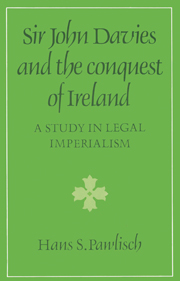Book contents
- Frontmatter
- Contents
- Preface
- Abbreviations
- PART I INTRODUCTION
- PART II JUDICIAL ENCOUNTERS: THE NATIVE COMMUNITY
- PART III JUDICIAL ENCOUNTERS: THE COLONIAL COMMUNITY
- 6 The mandates controversy and the case of Robert Lalor
- 7 The case of customs payable for merchandise
- 8 The case of mixed money
- PART IV CONCLUSION
- Notes
- Select bibliography
- Index
- Cambridge Studies in the History and Theory of Politics
6 - The mandates controversy and the case of Robert Lalor
from PART III - JUDICIAL ENCOUNTERS: THE COLONIAL COMMUNITY
Published online by Cambridge University Press: 13 October 2009
- Frontmatter
- Contents
- Preface
- Abbreviations
- PART I INTRODUCTION
- PART II JUDICIAL ENCOUNTERS: THE NATIVE COMMUNITY
- PART III JUDICIAL ENCOUNTERS: THE COLONIAL COMMUNITY
- 6 The mandates controversy and the case of Robert Lalor
- 7 The case of customs payable for merchandise
- 8 The case of mixed money
- PART IV CONCLUSION
- Notes
- Select bibliography
- Index
- Cambridge Studies in the History and Theory of Politics
Summary
The innovative use of judicial resolutions by Sir John Davies and the judiciary effected a sweeping alteration in the relationship between English conquerors and the native elements in Ireland. As the Reports demonstrate, however, judge-made law also became a tool against the Old English colonial community, the descendants of those who had settled in Ireland before the sixteenth century. This assault against a group which had been instrumental in securing the Tudor conquest may seem illogical, yet it was not without provocation.
Immediately after the death of Elizabeth in early April 1603, the southern towns in Ireland went on the rampage, expelling Protestants, reconsecrating Catholic churches, and defying central authority. Inspired partly by reports that James I intended to grant religious toleration to the island, the citizens of Waterford, Cork, Limerick, Kilkenny, Drogheda, Wexford, Clonmel and Cashel took the occasion to assert their solidarity against Protestant officials. In Waterford the corporation closed the city gates to Lord Deputy Mountjoy and his army of 5,000 men who had marched south from Dublin to restore order. In justification for this defiant behaviour, the unruly townsmen claimed the authority of a four-century old charter granted by King John. With Mountjoy waiting on the outskirts of the city, the corporation dispatched an ecclesiastical emissary, Father James White, Vicar-Apostolic of Waterford and Lismore, to negotiate. Leading a solemn procession from the city gates, White engaged the Lord Deputy in a theological debate over the right of Catholic subjects to take up arms against their sovereign.
- Type
- Chapter
- Information
- Sir John Davies and the Conquest of IrelandA Study in Legal Imperialism, pp. 103 - 121Publisher: Cambridge University PressPrint publication year: 1985
- 1
- Cited by



